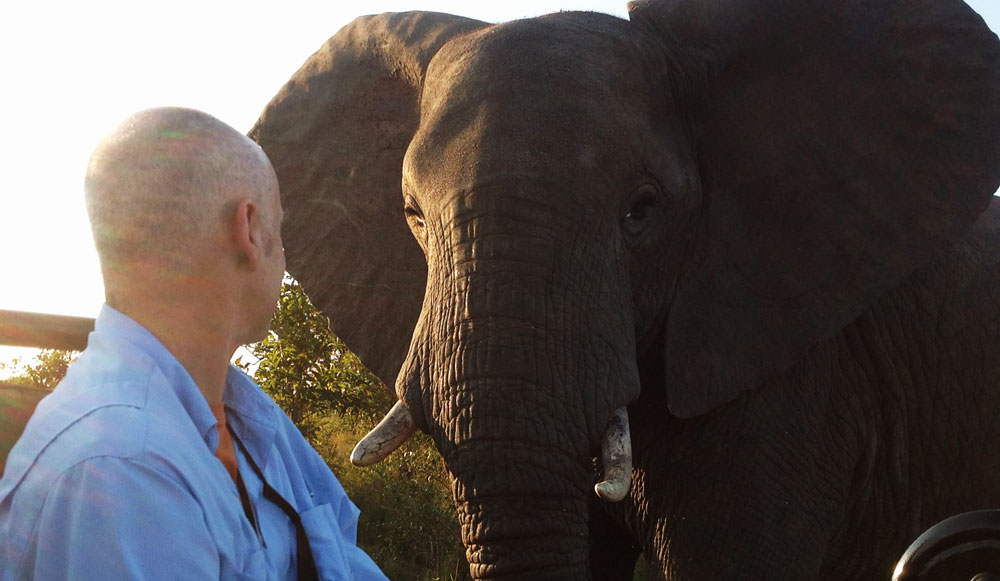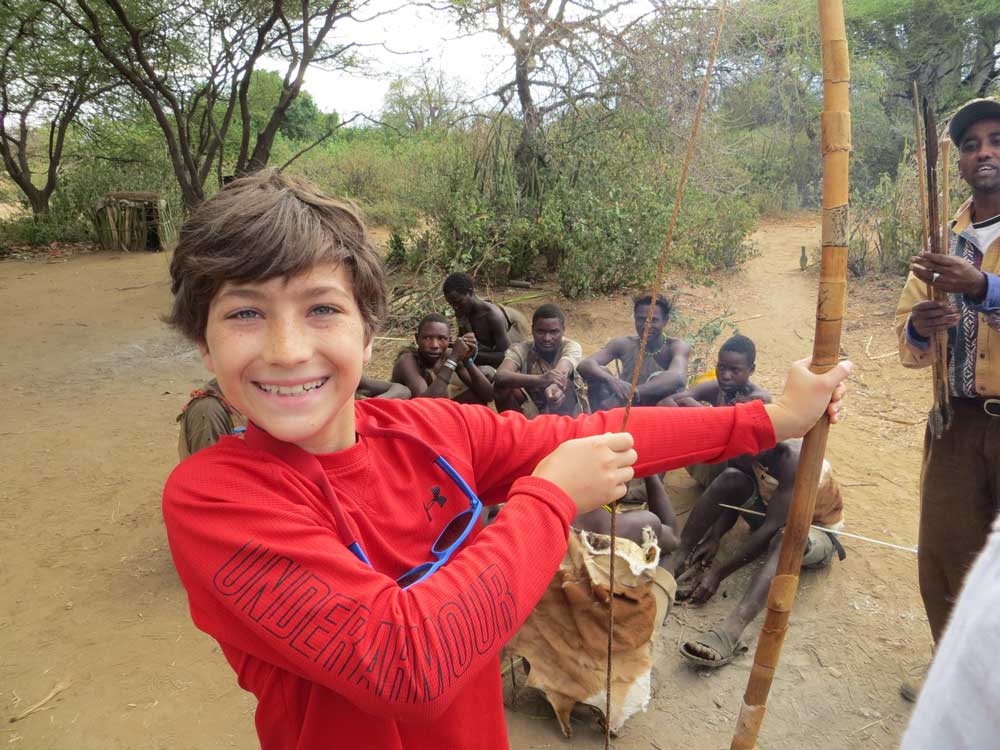A new study conducted by the Adventure Travel Trade Association (ATTA) in conjunction with researchers from East Carolina University showed that adventure travelers today are more interested in seeking transformative experiences, expanding their worldview, and spending time in nature. Research findings and background information on the new adventure traveler were detailed extensively in the article “Research Reveals Adventure Travelers Primarily Motivated by Transformation.”
Understanding the demographic details and interests of adventure travelers is obviously good information for tour operators and business owners to have, but data in and of itself only does so much. By applying these research findings in their product and marketing efforts, those working in the adventure travel industry can appropriately tailor their offerings and better communicate with their potential and returning customers.
Journalist Don Mankin has been thinking about the importance of transformation in adventure travel for years. His website, Discover the Transformative Power of Adventure Travel, has been live since 2008, and he recently penned a Huffington Post article on the topic. Additionally, Mankin, along with adventure tour providers Michael Bennett, Jake Haupert, and Kurt Kutay, has initiated the Transformational Travel Collaborative (TTC), “a collection of passionate individuals and organizations dedicated to helping people travel the world with more purpose and intention.”

He advises tour operators and adventure marketers to tread lightly with the new research and use care in choosing words to describe a trip. “Transformation as a concept can be a little bit intimidating,” he said. He provided an example of how this applies for travelers over the age of 50, who have the interest, time, and health to take an adventure trip. “If I am working with someone who is 65- or 70-years-old, who is planning an adventure trip, I might presume they have a relatively settled life. If I approach this traveler and say, ‘this trip will transform your life,’ they might quickly respond with ‘I worked hard to get where I am, I don’t want transformation!’ However,” Mankin added, “these people do want a great experience, they are open to learning about new possibilities, learning about the world and new people. They are interested in expanding their horizons.”
Mankin suggested that, for an older demographic, using very specific language is helpful. Instead of transformation, describe how the trip will encourage “a sense of self-discovery” or a “sense of mastery.” Perhaps note that time away in nature will help “strengthen and deepen relationships.” In essence, break down for travelers what “transformation” means in experiential terms.
Additionally, he encouraged practitioners and marketers to think about how, for many people, growth and changes from trips can be subtle and accumulate over time. Getting caught up with the language of transformation in an overly spiritual way can be alienating.
Transformation: Trend or Here to Stay?
Bennett, who is also the founder and chief adventure officer of Muddy Shoe Adventures observed that, along with heightened awareness for transformational potential in adventure tourism and the desire travelers seem to be expressing for these experiences, there is the risk of something akin to “greenwashing.” That is, companies may change little or nothing about their offerings, yet market with a focus on transformation. He and his colleagues at the TTC believe transformational travel is more of a movement, one that will fundamentally alter how travel is packaged and delivered over the next 20 years.

Anna Pollock, founder of Conscious Travel, echoed Michael’s fears with respect to simply marketing transformational travel without truly making an effort to deliver on the promise. She observed in a recent LinkedIn blog post, “if transformative and transformational become another set of empty words like sustainability, authentic, eco, and immersive – recent arrivals in marketers’ shiny new lexicon – we are doomed to continue along our suicidal path called ‘business as usual.’”
She went on to note the important opportunity at hand for the broader tourism community to take advantage of this consumer interest. The concept of transformative travel has the potential to be a “powerful force that helps change the fundamental assumptions on which mainstream business practices and many cultural norms are now based.” With this change, the travel industry can move forward in taking tourism from “a force that extracts and exploits to one that regenerates and vitalizes,” she wrote.
A lively discussion has begun within the TTC in which adventure travel tour operators and others are identifying and sharing ideas for how to design trips that truly have traveler transformation in mind. A simple recommendation, for example, is to engage in a short preparatory call with guests on how to prepare for the journey on which they are about to embark. As Bennett noted, “This doesn’t have to be a lengthy therapy session. Just calling to their attention the opportunities and how they can be receptive to them can make all the difference.”
Continuing the Conversation
The traveler focus on transformation brings to mind another important consumer trend: the use of digital devices and the importance travelers place on constructing a narrative for experiences. A question for many adventure tour suppliers is how digital devices impact the transformative component of the experience. Travelers say they want a transformative experience, yet can a transformative experience be obtained if guests are simultaneously “in” the experience and outside of it, packaging and narrating for social media friends?
Additionally, how will the desire for transformation tie in with expanding interests in and application of virtual experiences, in which people expect virtual experiences to become more prized than real experiences?
Share your thoughts on this research and transformative travel with other members of ATTA in the HUB at, Transformational Travel: Trend or Movement?
